Goheal: The merger and reorganization of listed companies is not only a transaction, but also a silent power war!
"Warfare is the art of deception." This famous saying in Sun Tzu's Art of War, which seems to be used to describe the ancient battlefield, has been repeatedly confirmed in the battle of the capital market.
Mergers and reorganizations seem to be a business exchange between two companies, but in fact they are a silent struggle for control, discourse power and future development dominance. Behind the signing of an agreement, there may be a blood transfusion of the top management of the board of directors, the "loss of voice" after the founder's shares were diluted, and the market's re-vote on "who is the leader".
American Goheal M&A Group
If financial indicators and price-earnings ratios are surface waves, then the struggle for control is the undercurrent of capital. This is a war without gunpowder, but every signing, every change of leadership, and every valuation adjustment means the expansion of one party's power map.
In this era of co-governance by algorithms, market value and supervision, listed companies are no longer a static economy, but a "battleship" that can be reorganized at any time. The reality observed by Goheal is even more dramatic - more and more mergers and acquisitions have eventually evolved into a contest around "control", and the more hidden, sophisticated and strategic they are, the more they go on.
The "invisibility" of power: precise layout beyond the terms of the transaction
Many people think that mergers and acquisitions are just a number game, signing a consideration and exchanging shares. But real players never stop at numbers, they are good at designing power structures.
Let's take an extreme but common example: a company acquires 60% of the shares of another company through mergers and acquisitions, which should have given it absolute control, but the board of directors has a "special voting rights clause" and the original major shareholder still holds veto rights in key resolutions. So the new owner, who seems to be the controlling party, is just a "power display cabinet" on the books, while the real controller is still sitting in a more hidden corner, continuing to pull the thread of the company's fate.
Goheal once assisted a cross-border smart manufacturing company in acquiring a Middle Eastern listed company. On the surface, it was pure industrial integration, but behind the scenes, through "agreement control + board seat restrictions + profit guarantee agreement", the Chinese side achieved actual control without controlling the company. This is not magic, but a strategic design of capital game.
The essence of restructuring: not changing a piece of land, but redistributing military power
We often hear about "asset restructuring", but do you really understand the energy transfer behind it?
Sometimes, the so-called "stripping of non-core businesses" is not just for financial optimization, but to deconstruct the original power structure-whoever controls the most profitable department and whoever has cash flow has the right to speak. Goheal observed in a transaction where an A-share company divested its logistics sector that although the original CEO retained his position, he lost budget dominance because the core profitable assets were consolidated into the holding subsidiary. Although he had voting rights on the board of directors, he had no control over the future. Who is the real "speaker"? The answer has long been rewritten at the moment of asset restructuring.
What's more interesting is that behind some restructurings, there is also a reconfiguration of "listed shell resources". A private medical group reorganized a GEM company in the form of "asset injection", but in fact it was a forerunner for its AI diagnosis and treatment platform to enter the capital market. The original shareholders seemed to have kept their shares, but in fact they were marginalized, and almost all the management of the original shell party was replaced within a year.
In Goheal's eyes, there are more and more cases of "assets in name, power in reality". Transactions are just appearances, and the real goal is to control the stage lights and microphones.
Market value is just bait, and dominance is the ultimate trophy
The struggle for control is not only reflected in the transaction process, but also permeates the secondary market performance in the future.
The capital market is a place that naturally advocates "stories", and the controller decides how to tell this story. Whoever speaks louder and more imaginative can activate the valuation engine. Therefore, the acquisition of control is not just to run the enterprise, but also to arrange the narrative rhythm, define industry standards, and ultimately control the "market value expectations".
When analyzing the path of a certain technology unicorn to go public through a backdoor listing, Goheal found that the company not only firmly controlled the company's internal power structure through three rounds of "blood-changing" board adjustments and two rounds of restricted stock incentive plans, but also successfully told the story of "AI+security", and the market value increased sixfold in two years. The script behind it is not complicated, but the logic of each step of power distribution is clear and restrained, and it can even be called "power capitalization".
The ultimate test for entrepreneurs: Be the actual controller or tell a story?
In mergers and acquisitions, the most difficult thing is not the quotation or the legal documents, but the entrepreneur's value judgment on "control". Many people think that staying in the position means keeping the right to speak, but they don't know that from the moment of "signing the bet agreement", you are already a piece on someone else's chessboard.
Goheal repeatedly reminded entrepreneurs in many mergers and acquisitions: "Keeping shares ≠ keeping control, sitting on the rostrum ≠ holding the microphone." Do you want a platform or command? Is it profit dividends, or the dominance of the market rhythm? In the new round of control transfer, those who blur these issues are often marginalized the most thoroughly in the next round of board changes.
More and more technology entrepreneurs choose to compromise on control in exchange for capital support. It seems to be "actively giving up", but in fact it is to dominate the value chain from a different angle. Control does not necessarily have to be a 51% stake, it can also be controlling the right to speak in technology, pricing power or the binding of upstream and downstream resources.
This is exactly the "flexible control model" that Goheal has most advocated in the restructuring of global technology companies in recent years - through technical barriers, platform binding, and data closed loops to form actual irreplaceability, thereby achieving "no smoke" power occupation.
The next battle in the capital market, is it structural power or narrative power?
Back to the original question: What is the merger and reorganization of listed companies? Is it structural optimization or value enhancement? Is it a market value game or a financing channel?
None of them is the essence.
The essence is the redistribution of power. Who will define the future development direction of this company and who will decide what kind of capital story it tells.
From "asset mergers and acquisitions" to "ecological packaging", from "stock exchange entry" to "board of directors secret battle", capital is recoding the organizational structure in a more secretive way. If investors only look at the surface stock exchange ratio and transaction price, they may ignore that the entire power structure has tilted - the future strategic big moves will no longer be decided by the old "chairman", but by an "executive partner" you may not have noticed.
Goheal reminds entrepreneurs and investors: What is really worth studying is not which company was acquired, but who controls the button, defines the direction, and tells the future through this transaction.
As a well-known trader in the capital market said: "It doesn't matter who is signing, what matters is who is writing the script."
Conclusion:
When mergers and acquisitions become the norm in the strategy of listed companies, the game of control is also evolving. Can you see through the mystery of the arrangement of board seats from the seemingly calm announcement? Can you see the subtext behind the "profit bet"? Can you identify which transactions are for the reconstruction of power and which are just short-term profit distribution?
Goheal Group
This silent war of capital has already started, and the table has been set. The only question is - where do you sit?
Welcome to leave a message in the comment area to discuss: Do you think that in future mergers and acquisitions, the acquisition of control will continue to be "flexible"? How should entrepreneurs balance the triangular relationship between technology, capital and power?
[About Goheal] Goheal is a leading investment holding company focusing on global mergers and acquisitions. It has deep roots in the three core business areas of acquisition of controlling rights of listed companies, mergers and acquisitions of listed companies, and capital operations of listed companies. With its profound professional strength and rich experience, it provides companies with full life cycle services from mergers and acquisitions to restructuring and capital operations, aiming to maximize corporate value and achieve long-term benefit growth.


